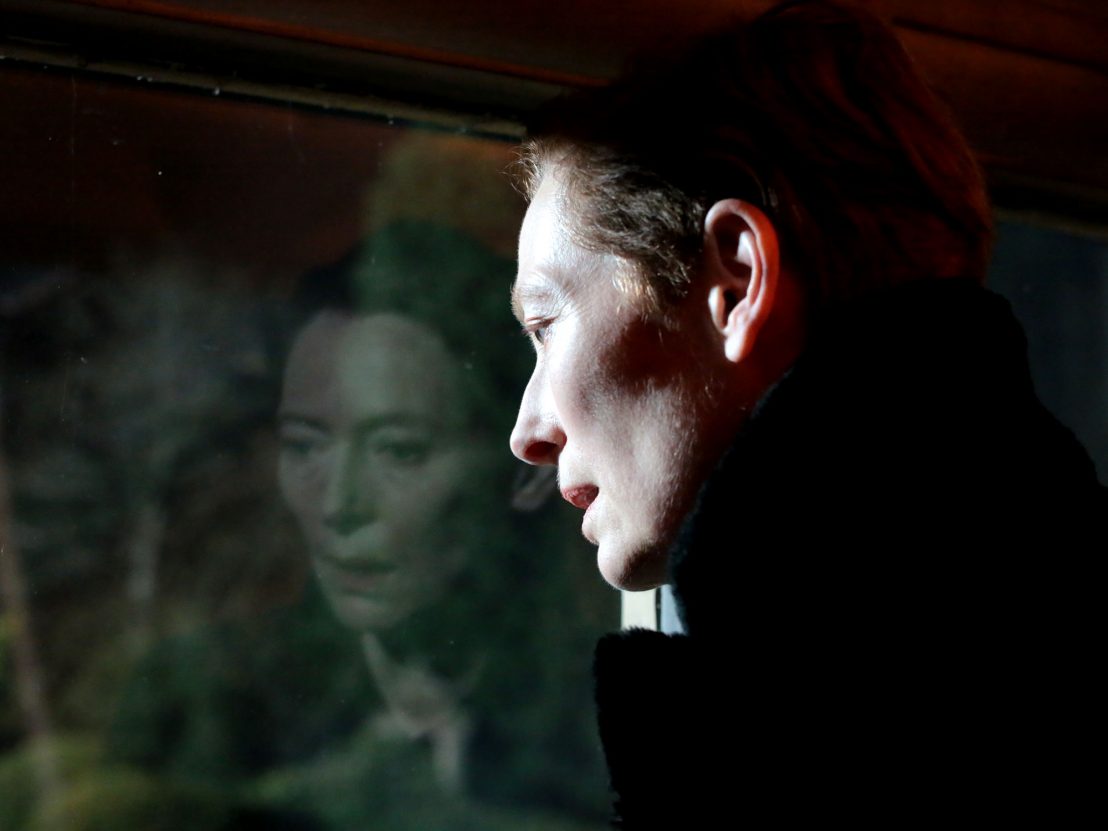
Tilda Swinton plays both mother and daughter in Joanna Hogg's eerie and effective exploration of parent-child relationships.
The Eternal Daughter opens on a shot of mist drifting across a wooded section of road. A white taxi cab, fog lights on, glides like a ghost out of the mist towards us. The taxi is conveying two Tilda Swintons, but they aren’t doppelgängers: one is middle-aged, the other older. Swinton is no stranger to exploring left-field casting ideas, but this is the first time she has played her own mother.
Joanna Hogg, the British director noted for her shrewd studies of middle class anxieties, borrows techniques and motifs from ghost stories for this uncanny portrait of a mother-daughter relationship, told exclusively through time spent at an out of the way hotel. This hotel is well-chosen. A sprawling old country pile, it is seemingly almost deserted and appears to be miles from anywhere. The wind whistles through the trees. A shadow looms in the corridor. A pale face appears at a window. Everything creaks. Memories stalk both mother and daughter.
Lest this all sound relentlessly gothic, there is a bit of grit in the oyster provided by the hotel’s receptionist/waitress, a masterclass in barely concealed fury and loathing from Carly-Sophia Davies, in her first film role. And to be fair to the character, why not be furious? She appears to have been largely abandoned to run the show on her own, never mind the fact that this was probably never the job of her dreams.
The intangibility of our dreams is a key concept in the wider film: the middle-aged daughter character dreams of an elusive connection with her mother but can’t quite articulate what that would actually look or feel like, resulting in frustration. She repeatedly finds herself trapped in a quiet battle with her mother’s instinct to gravitate toward small talk.
Her mother’s own dreams and wants are elusive, even in miniature: she’s the kind of woman who when asked if she would like dessert, asks if you would like dessert (my mum does this and we’re just about to go on a big mother-daughter holiday together, adding another layer of spookiness and coincidence to my experience of this film), refusing with infuriating mildness to make even a minor decision based on her own desires.
The mirror-effect created by having Swinton play both the mother and the daughter is further mirrored by the relationship the film has to real life, which is evidently autobiographical. The daughter’s profession is filmmaker, which is the source of the film’s most interesting unease, hanging like a spectre over proceedings. To what extent, the filmmaker character wonders, do I have the right to make a film about any of this? She continually records her conversations with her mother as audio files on her iPhone, and the question of how consensual these recordings were is left ambiguous.
The ability to effectively trap digital ghosts in our devices, as part of a longing to preserve some sense of connection, sits at the foremost frontier of modern anxieties about death and what we leave behind, while the double casting of Swinton underlines the fact that having children used to be the only way that we could leave behind partial copies of ourselves. There are as many potential ways to approach a parent-child relationship onscreen as there are parent-child relationships on the planet, but Hogg may have just discovered a new one.
Published 6 Sep 2022

The sequel to Joanna Hogg’s autobiographical masterpiece is a stunning portrait of an artist’s profound exploration of grief.

Joanna Hogg explores her own memories to create a fragile, fascinating portrait of romance in both bloom and decay.

The writer/director and star of The Souvenir discuss diaries, memories and the life-changing qualities of making art.